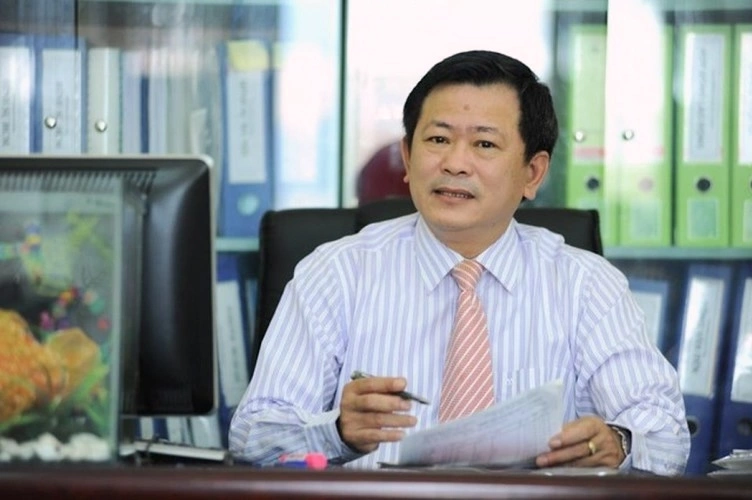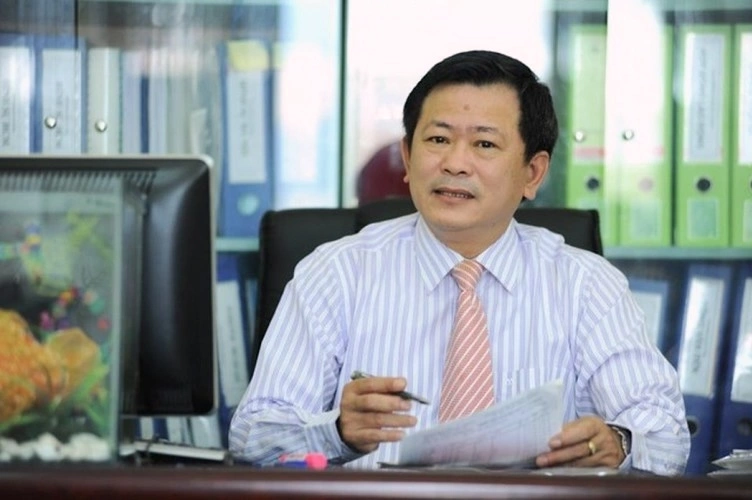
Bảo Khánh and Lê Giang wrote this Vietnamese article, published in Luật Khoa Magazine on June 13, 2025.
A well-known figure in Việt Nam’s legal circles, Atty. Trần Đình Triển often defended clients in sensitive, high-profile cases. He recently appeared in court, however, not as counsel but as the defendant.
On May 30, 2025, the High People’s Court in Hà Nội upheld a three-year prison sentence against him under Article 331 of the 2015 Penal Code. The official charge was for “abusing democratic freedoms to infringe upon the interests of the State and the lawful rights and interests of organizations and individuals.”
The case against Trần Đình Triển has drawn widespread attention. Here is a breakdown of the key issues.
Trần Đình Triển, born in 1959, is a lawyer with a legal career spanning over 40 years. A prominent figure in Hà Nội’s legal community, he founded the Vì Dân (For the People) Law Office in 2006 and served as the Vice Chairman of the Hà Nội Bar Association from 2013 to 2018.
Throughout his career, he became known for taking on politically sensitive cases and challenging government actions.
In 2010, he defended activist Cù Huy Hà Vũ against anti-state propaganda charges. In 2012, he represented the wives of two men in the controversial Tiên Lãng land eviction case, arguing their actions were legitimate self-defense. Triển expressed pessimism about the potential for justice in such cases, famously stating, “When a country lacks the rule of law and civil society, where the law is not supreme, such things will continue to happen.”
His willingness to confront the state extended beyond the courtroom. He was a vocal advocate for the rights of journalists, filed official complaints about the obstruction of legal work, and in 2019, publicly accused a high-ranking police official of corruption. It was his frequent use of social media to post criticisms of Việt Nam’s judiciary that ultimately led to his indictment under Article 331.
Despite his criticisms, Triển’s political stance was complex. He expressed support for certain government policies, such as Nguyễn Phú Trọng’s anti-corruption campaign, Tô Lâm’s presidency, and publicly displayed admiration for Hồ Chí Minh.
Following the criminal charges against him, the Hà Nội Bar Association officially suspended his legal license and membership on Jan. 2, 2025.
Case Timeline
The case against Trần Đình Triển began with three Facebook posts he published between April 23 and May 9, 2024, in which he criticized the judiciary and Supreme People’s Court Chief Justice Nguyễn Hòa Bình.
These posts quickly drew official attention. On May 13, 2024, the Supreme People’s Court requested that the Ministry of Public Security’s Investigation Agency investigate two of Triển’s articles—”Nguyễn Hòa Bình – The Top Traits of a Chief Justice” and “Did Nguyễn Hòa Bình Speak Right or Wrong?”—for allegedly damaging the court’s reputation. That same day, VietinBank requested clarification regarding another post—”Should the Investigation into Lê Đức Thọ Be Expanded—Is Chief Justice Nguyễn Hòa Bình’s Son Involved?”—that implicated the Chief Justice’s son in a separate investigation.
On June 1, 2024, Triển was formally indicted and detained under Article 331. On the same day, the Ministry of Information and Communications issued an official evaluation, claiming the posts had harmed public trust in the judiciary and presented a risk to public order.
The case culminated months later, on Dec. 11, 2024, when the Supreme People’s Procuracy formally charged Triển with violating Article 331. The authorities deemed his posts subjective, based on personal grievances, and lacking verified evidence.
First-Instance Trial Developments
During his first-instance trial on Jan. 9–10, 2025, at the Hà Nội People’s Court, Trần Đình Triển argued that his Facebook posts were lawful expressions of opinion aimed at constructive criticism. His defense attorneys raised four main objections: the lack of identifiable victims, wrongful detention, delayed access to case files, and the legitimate exercise of free speech. The court, however, rejected all defenses, convicted him under Article 331, and sentenced him to three years in prison. Triển immediately appealed the verdict.
Appeal Trial Developments
The appellate hearing convened on May 30, 2025, at the High People’s Court in Hà Nội. The trial was closed to the public, and only lawyers with official summonses were permitted entry; fifteen registered to defend Trần Đình Triển. He immediately challenged the court’s jurisdiction and requested a new presiding judge, citing procedural violations and a lack of transparency; Triển claimed he was denied access to documents and that the court failed to respond to his complaints.
The courtroom atmosphere grew tense as his lawyers demanded the presence of key witnesses, including Chief Justice Bình. The drama escalated when one lawyer raised health concerns after Triển reportedly stopped breathing and required hospitalization, prompting a sharp rebuke and a threat of expulsion from the presiding judge.
Triển eventually asked his own lawyers to remain silent, expressing his belief that their arguments were futile. “I thank my lawyers for their past and future support,” he stated. “But please do not argue in court. Our words carry no value here.” He then personally asserted his innocence one last time, dismissing the prosecution’s case as baseless.
In his final statement, Triển emphasized his lifelong service to the Party and people, insisting his writings were always intended to be constructive. He framed the entire process as a “probationary chapter” in his life, aimed at sparking reform in Việt Nam’s justice system. The appellate court was unmoved and upheld his three-year prison sentence.
Public Response in Việt Nam
The verdict against Trần Đình Triển was met with widespread outrage and sadness from his family, legal peers, and public intellectuals across Việt Nam.
His son, Trần Đình Minh Long, published an emotional defense of his father, reposted Triển’s Facebook posts. and argued that under the broad interpretation of Article 331, nearly any Vietnamese citizen could be considered a “potential prisoner.” Fellow lawyers, including Bùi Thị Thủy and Ngọc Minh Châu, publicly asserted that Triển’s posts were both lawful and truthful. His ex-wife, Atty. Đinh Hoài Mai, described him as a principled man who often took unpaid leadership roles to defend clients’ rights.
The case sent a chill through the wider community. Educator Mạc Văn Trang captured the sentiment, lamenting, “If 14 lawyers can’t defend one lawyer in court, what hope is there for regular citizens?”
State and International Reactions
While Việt Nam’s state-run media largely echoed the official government narrative of the case, the verdict drew swift and unified condemnation from international news outlets, human rights organizations, and foreign governments.
Major news agencies like Reuters, The Straits Times, France24, and Nikkei Asia reported the case as part of Việt Nam’s broader suppression of dissent. VOA quoted human rights advocates who condemned Article 331 as vague and incompatible with international law.
The International Commission of Jurists called Triển’s arrest arbitrary, while the U.S. State Department urged Việt Nam to release all unjustly detained individuals. Human rights groups, including Human Rights Watch and Project 88, labeled his prosecution a fundamental rights violation, citing it as part of a familiar pattern of crackdowns.
Phil Robertson of the Asia Human Rights and Labour Advocates (AHRLA) offered a grim summary of the outcome: “The moment Việt Nam charged Trần Đình Triển over Facebook posts, his imprisonment was inevitable. He sought justice in a system where courts merely ratify the Party’s decisions.”

